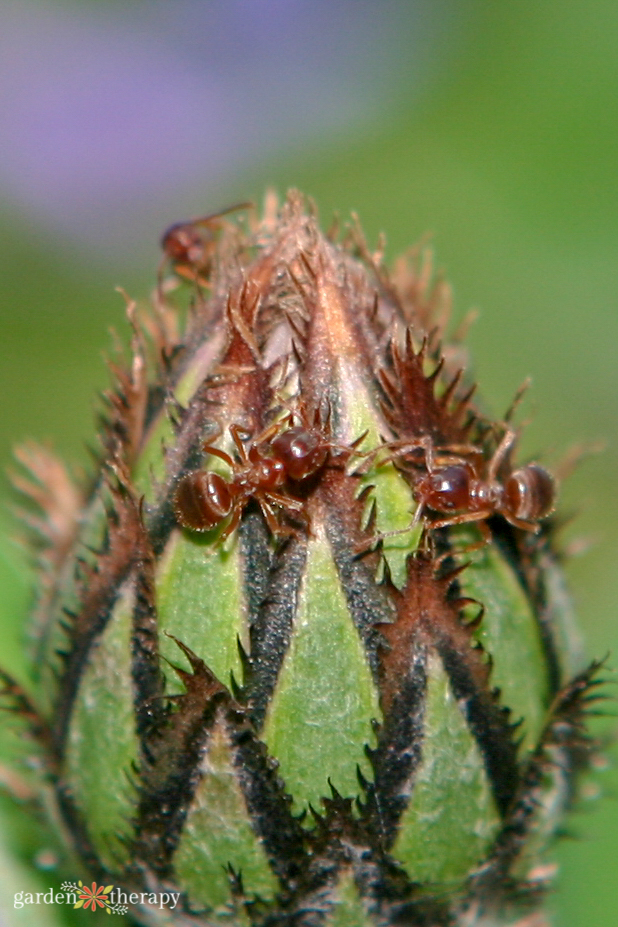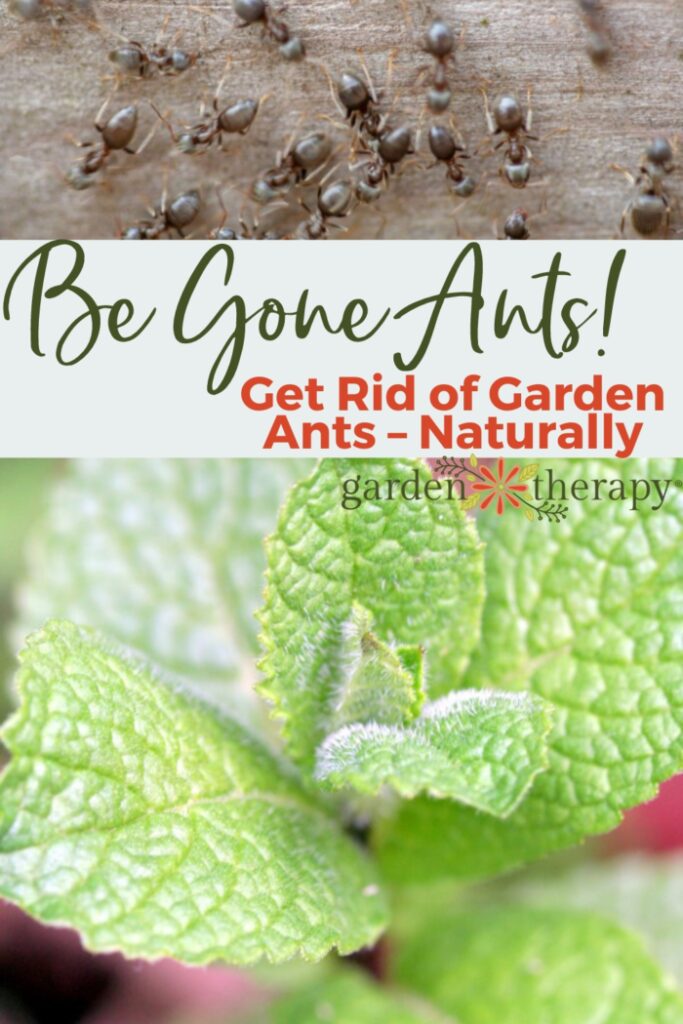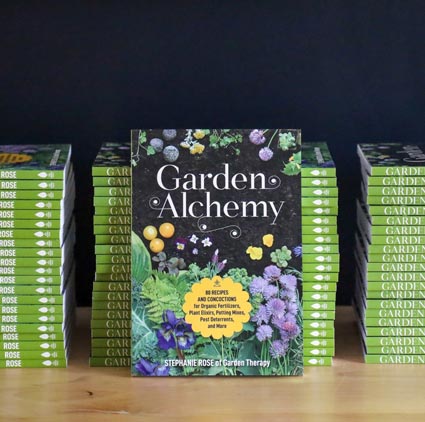While I’m very pro insects in the garden, sometimes they can get out of hand and do more harm than good. This can include ants! Rather than try to exterminate the whole population of ants in your garden or use toxic chemicals that could affect other good insects and your plants, here’s how to get rid of ants in the garden naturally.
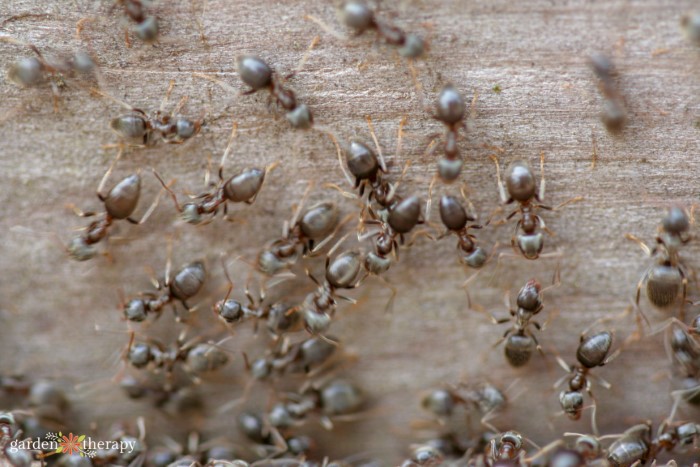
In this post, you will learn…
- What Are Ants Eating?
- What Eats Ants?
- How to Get Rid of Ants in the Garden Naturally
- Keep a Clean Yard
- Herbs to Deter Ants
- Attract Ants
- Will Vinegar Kill Ants in the Garden?
- A Note in Praise of Ants!
- More Posts About Garden Insects
What Are Ants Eating?
First, find out what the ants are eating and what’s eating it. When dealing with any pest, try to understand the ecology of the pest, the host plant, and the environment allowing the pest to get to an unbalanced amount.
This is known as integrated pest management, and it’s how you get to the root of the cause!
If you notice more than the usual amount of ants in the garden, there’s probably a food source in the area. Perhaps it’s a hummingbird feeder or some of your fruits.
Either try to eliminate the food source, space the food source out (AKA, don’t put all your fruits and vegetables together in one place), or put measures in place that will stop the ants from eating the food.
Another example is aphids. Ants love to ‘farm’ aphids for the sweet honeydew they produce. Ants aren’t harmful to plants, but they will protect the aphids from predators.
If ants become a detriment to the predatory insect, hose off the aphids daily for a week or two. The ants will eventually move on to other food sources that aren’t so much trouble.
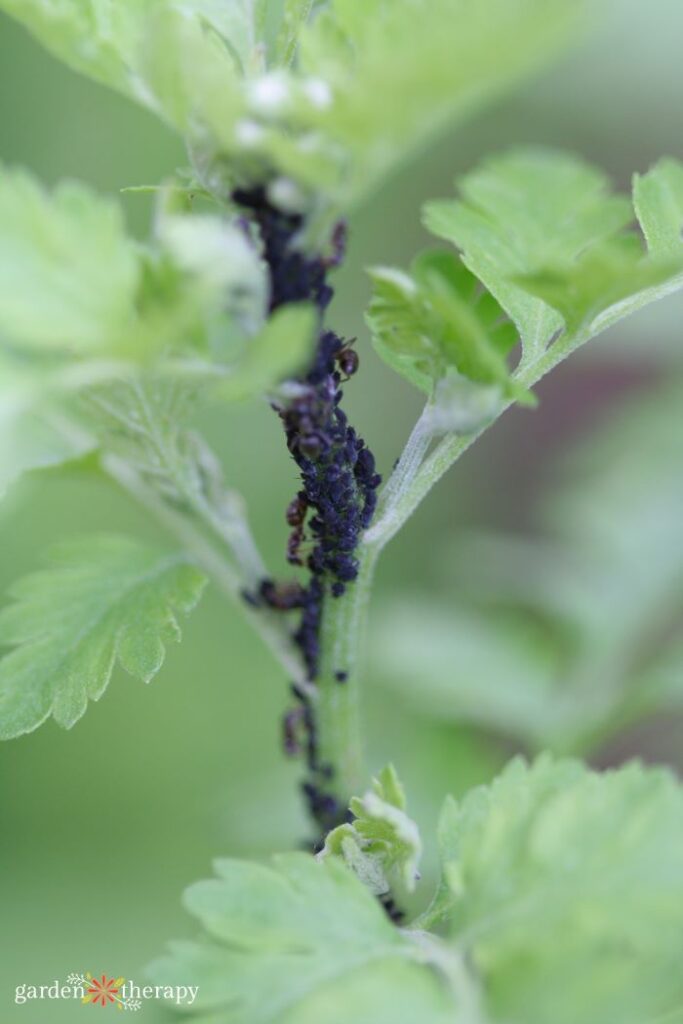
What Eats Ants?
Another way to naturally get rid of ants in the garden is by introducing predators. Try to make your garden as friendly as possible for these predators. For instance, leave behind spider webs rather than sweep them up.
Attract birds to the garden with a feeder or a bird bath. Make sure there are rocks and nooks in your garden where frogs, lizards, and snakes might inhabit. Build a bug hotel to invite all other predatory insects!
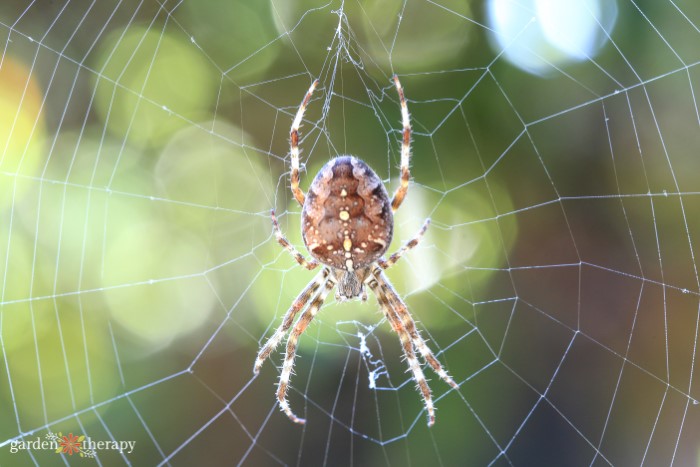
How to Get Rid of Ants in the Garden Naturally
Once you take a look at ecology as a whole, here are some other handy tips to try.
Keep a Clean Yard
Ants are attracted to all kinds of smells, so you want to keep your compost and garbage away from the house and any specific areas of the garden you want them away from. This includes BBQs, butterfly feeders, hummingbird feeders, and bird feeders.
Debris can also attract ants, such as dead branches and fallen leaves. Rather than remove the leaves and debris from your garden (they’re very important to beneficial wildlife!), relocate them out of the way.
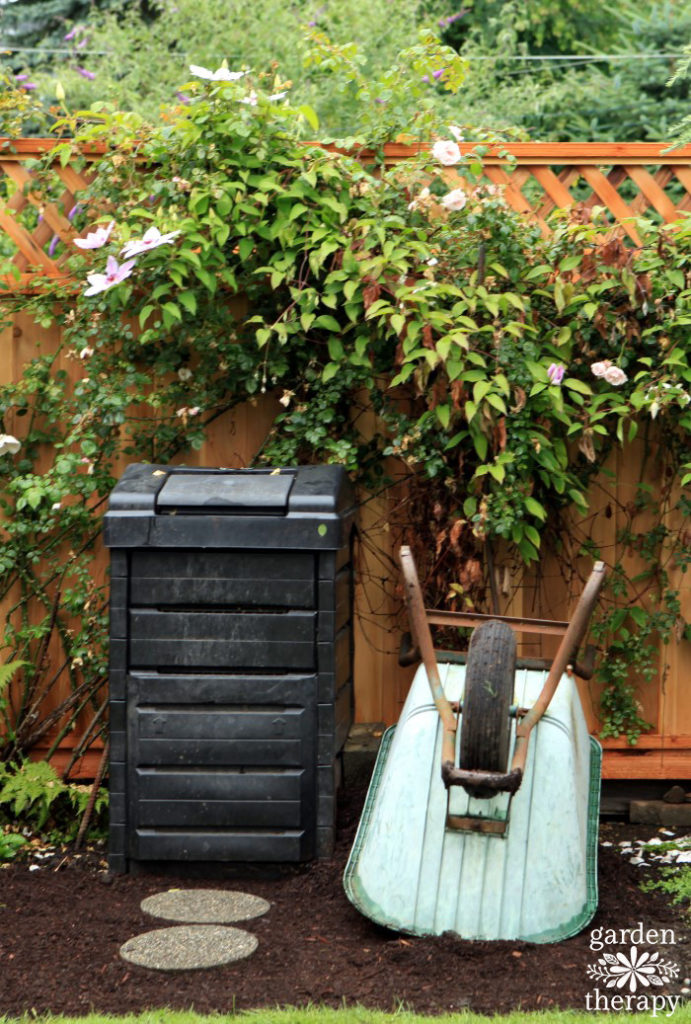
Herbs to Deter Ants
There are some herbs that ants hate! Add them to my herbal pest deterrent spray or use them on their own to deter ants.
Since the spray can deter good insects too, only use it when the ant population needs intervention and then discontinue use once the balance is under control again.
- Catnip
- Mint
- Pennyroyal
- Tansy
- Wormwood
- Chrysanthemums
Companion planting with the plants above can also work well when you want to get rid of ants in your vegetable garden.
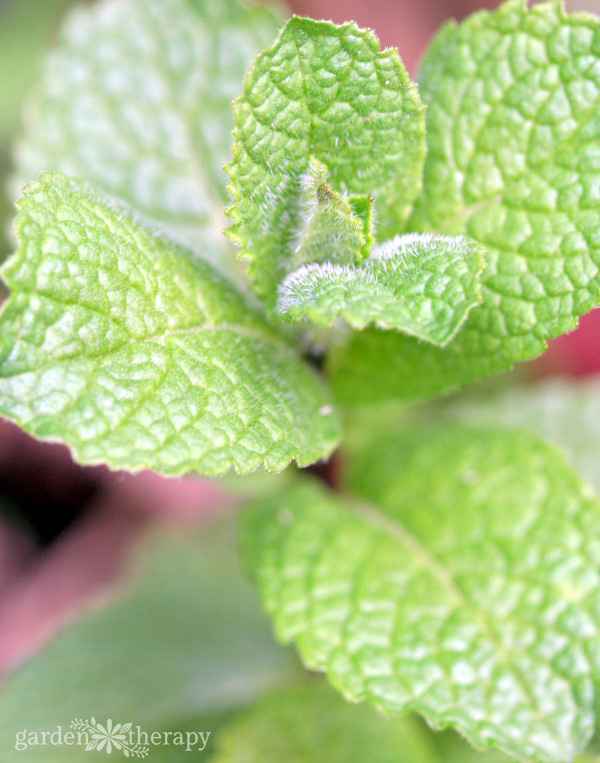
Attract Ants
Sometimes, you can attract ants to come to your garden. If you notice they inhabit a certain garden area (such as your fruit and vegetables), you can encourage them to vacate to a different part of your garden where they won’t bother you or your produce!
This could mean moving your compost bin to an unused corner, attracting aphids with nasturtium or Shasta daisies for ants to farm, or setting up a jar with something sweet for them to eat.
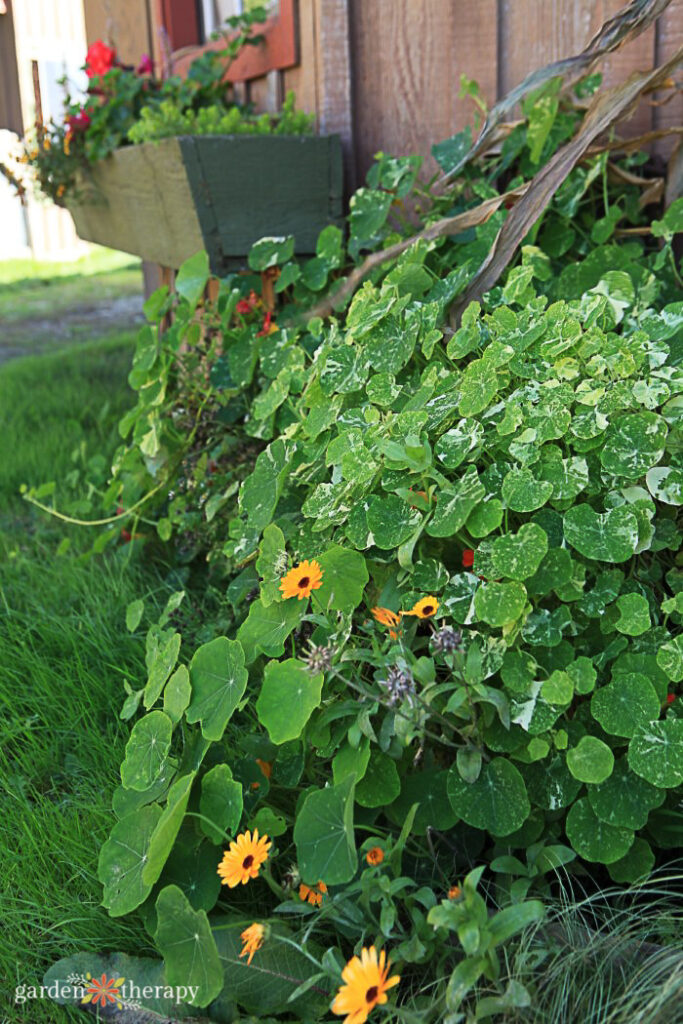
Will Vinegar Kill Ants in the Garden?
There are many ways advertised to kill ants. I recommend not killing them as they’re beneficial (more on that below). Instead, work on preventing ants in the garden from infesting certain areas.
White vinegar is one way to repel ants rather than kill them. You can dilute it with water and spray it in areas you want to keep ants away from. Remember that vinegar can kill plants, so be careful where you spray.
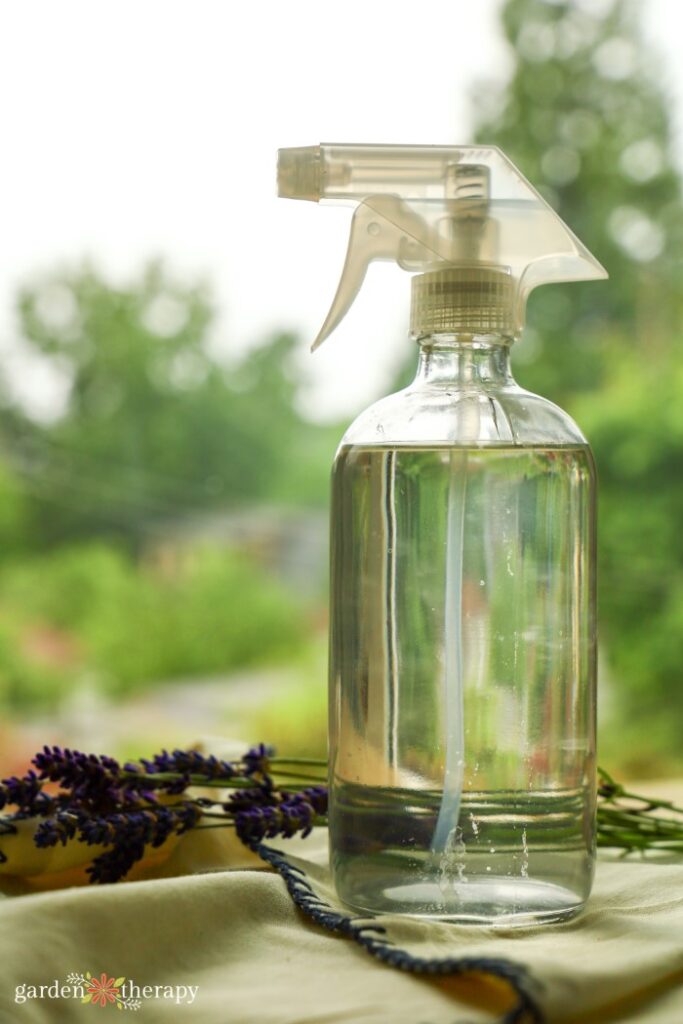
A Note in Praise of Ants!
If the ant isn’t on the local watch list and isn’t causing much damage, it may be safe to leave it be. Your garden is simply part of the ecosystem!
Ants may be farming aphids on your rose bushes, but they also work hard in the garden to clean up debris and aerate the soil. In most cases, ants won’t cause any damage to plants and are quite harmless to have in the garden.
